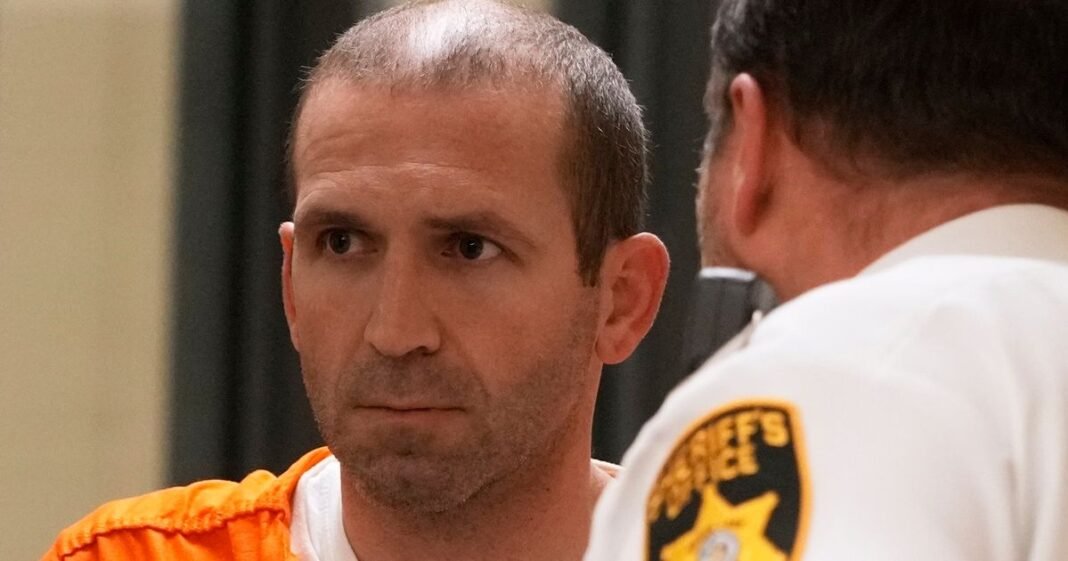A man who was married and enjoyed kayaking admitted to fabricating his own demise to pursue a new life with another woman, labeling his scheme as an “emotional dream.” Ryan Borgwardt, aged 46, messaged his wife Emily expressing love before claiming he was heading to a lake to view the Northern Lights, only to capsize his kayak and vanish. The father of three harbored intentions to commence a fresh chapter with a woman in Georgia, prompting him to cycle through the night to catch a bus for the initial phase of his intricate getaway.
However, authorities eventually apprehended Borgwardt by tracing his digital trail, leading to his confession of feeling like a failure and deeming his escape plan to the Eurasian country a “crazy, emotional dream.” These candid statements, disclosed by police in Green Lake, Wisconsin, shed light on the strain in his marriage. Following the unraveling of his plot, his wife pursued a divorce in May.
Borgwardt was recently convicted of obstruction and sentenced to 89 days in jail. The legal documents exposed Borgwardt’s determined effort to stage his demise after departing from his family home in Watertown, Wisconsin. Subsequent to intentionally overturning his kayak in Big Green Lake, he returned to shore in an inflatable raft and then embarked on a 70-mile nighttime ride to Madison, Wisconsin’s capital, where he boarded a bus to Toronto.
While authorities scoured for his body for 50 days following the discovery of the overturned kayak, Borgwardt made his way to Tbilisi, meeting Katya, a woman he had encountered on a dating site eight months earlier. They had maintained online communication during this period. Borgwardt began contemplating faking his death in April 2024 as his bond with Katya deepened, leading investigators to contact him through an email left on his laptop. Persuaded by their appeals to do right by his family, Borgwardt eventually agreed to return to Wisconsin.
Before being incarcerated, investigators probed Borgwardt during a three-hour interrogation about his motivations. He attributed his actions to feeling like a failure, citing substantial debts and strained relationships with his family. Expressing his sense of hopelessness, he admitted to lacking communication with his wife and feeling trapped in his circumstances.
The defendant articulated, “I think just the inability to feel like you could talk to your wife about some of this stuff, and maybe the complete hopelessness that you have in the situation that you’re in.”

